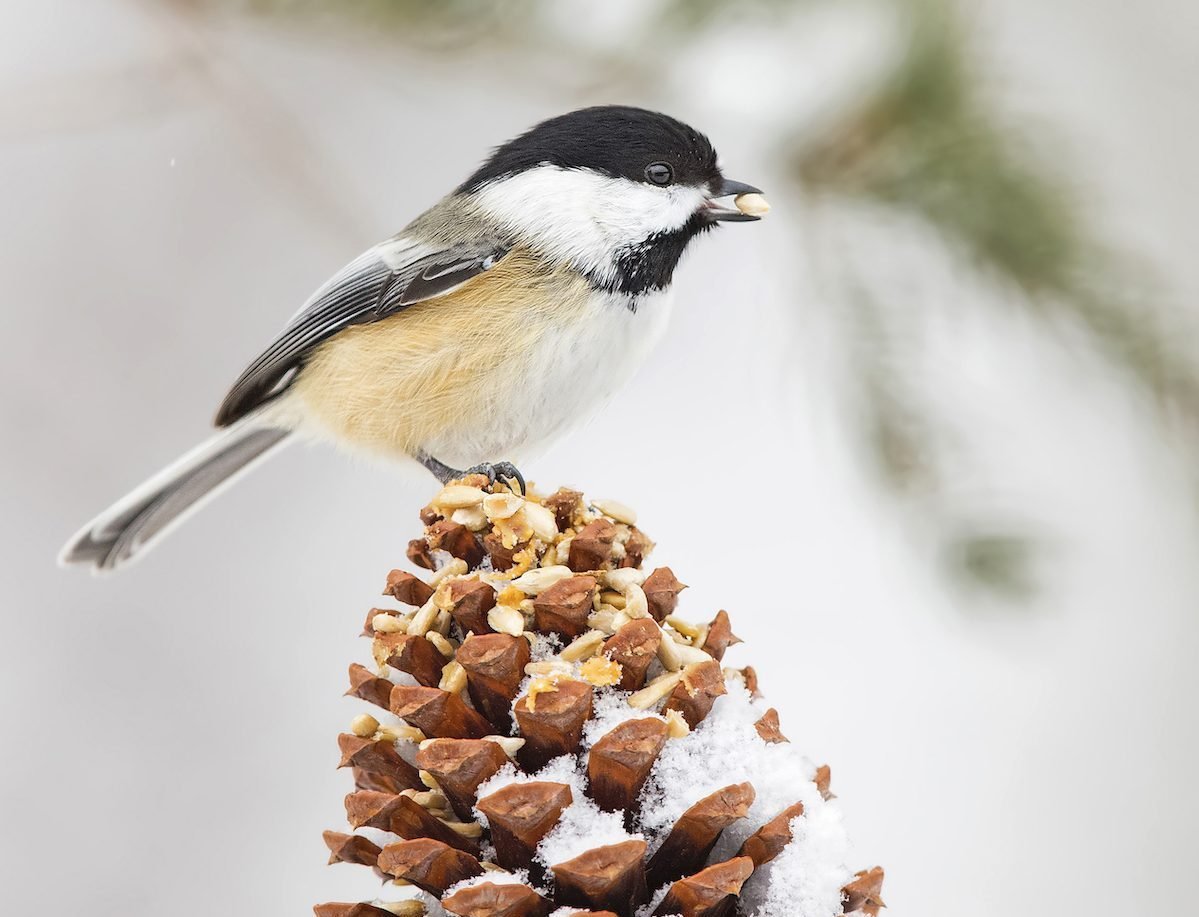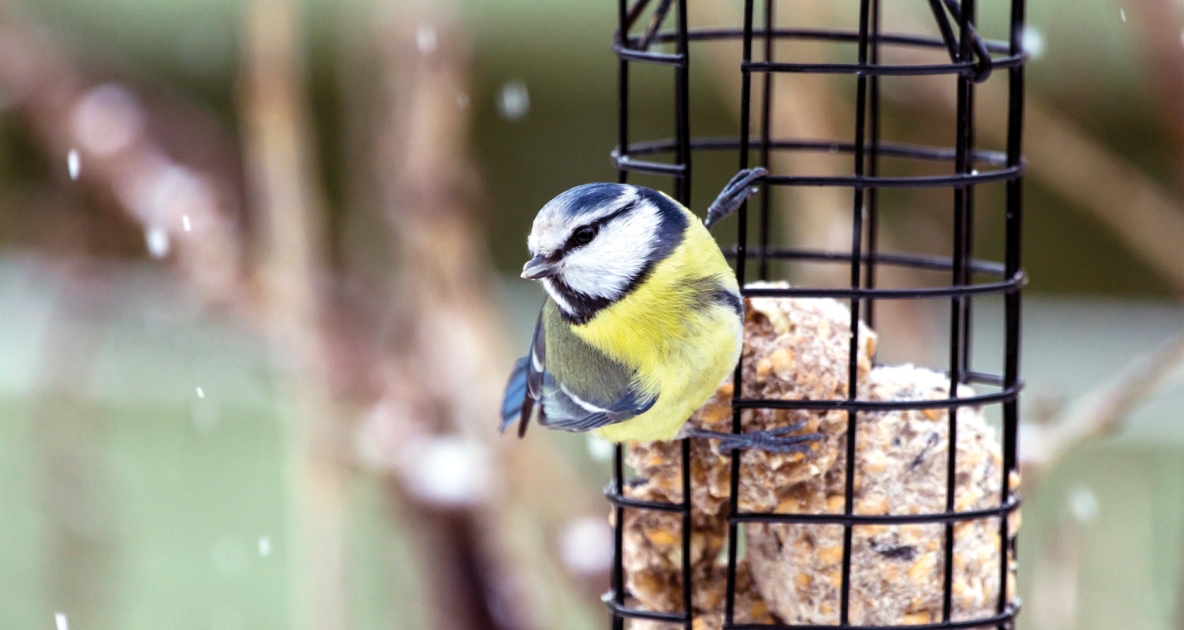During the winter months, it is essential to provide high-energy foods for birds to ensure their survival and wellbeing. Fatty foods like black oil sunflower seeds, peanuts, and suet offer much-needed warmth and sustenance. These foods are preferred by a variety of birds, ranging from seed-eating species to finches. Additionally, carbohydrates from white proso millet and the beloved niger seed offer an extra boost of energy, particularly for ground-feeding birds and smaller finches. To maintain a constant food supply, bird feeders should be regularly filled, cleared of snow and ice, and accompanied by a source of liquid water, which can be provided through a heated bird bath. This winter, let’s help our feathered friends thrive by offering them the essential high-energy foods they need.
High-Energy Foods for Feeding Birds in Winter
Feeding birds during the winter months is crucial for their survival and well-being. As the temperature drops, birds need high-energy foods to stay warm and maintain their energy levels. Providing a variety of nutritious foods can attract a wide range of bird species to your yard. Here are some high-energy foods that you can offer to your feathered friends during the winter season.
Black Oil Sunflower Seeds
Black oil sunflower seeds are a staple in the diet of most seed-eating birds. They are rich in fatty acids and protein, providing the essential nutrients that birds need to sustain their energy levels. These seeds are highly preferred by a wide variety of birds, including finches, chickadees, cardinals, and sparrows. They can be easily found in pet stores or garden centers.
:max_bytes(150000):strip_icc()/kitchen-scraps-to-feed-birds-386571-v3-ff14da67b1b741fa9f095ca320315acc.png)
Peanuts
Peanuts are another excellent source of fat and protein for birds. Many bird species, such as woodpeckers, jays, and nuthatches, prefer peanuts over other food options. You can offer whole peanuts or peanut butter to attract these birds to your feeders. If you choose to offer whole peanuts, make sure they are unsalted and not roasted.
White Proso Millet
White proso millet is a nutritious carbohydrate source that provides birds with the energy they need to survive the winter. Ground-feeding birds, like sparrows and juncos, particularly enjoy this type of seed. You can sprinkle millet on the ground or in low trays to make it easily accessible for these birds. It is important to note that millet may not be as popular among all bird species, so it’s worth experimenting with different foods to see what your local birds prefer.
:max_bytes(150000):strip_icc()/close-up-of-great-tit-eating-peanut-by-snow-713845389-59de75e1054ad900107b450d.jpg)
Niger Seed
Niger seed, also known as thistle, is a favorite food of small finches like goldfinches and pine siskins. These tiny seeds have a high oil content, making them an excellent energy source for birds during the winter months. To feed niger seeds to birds, you will need special thistle feeders with small holes that prevent spillage and waste. These feeders are widely available in pet stores and online.
Suet
Suet, which is rendered beef fat, is a highly nutritious and energy-rich food loved by birds in the winter. It can be offered in suet cages or specialized suet feeders. Suet is particularly attractive to woodpeckers, nuthatches, and chickadees. You can find suet cakes or make your own by rendering beef fat and mixing it with a variety of bird-friendly ingredients like birdseed, nuts, and dried fruits.

Keeping Bird Feeders Full and Accessible
To ensure that birds have a reliable food source throughout the winter, it’s important to keep your bird feeders full and easily accessible. Birds rely on these feeders for their survival, and keeping them well-stocked will attract a greater variety of species to your yard. Regularly monitor the feeders and refill them whenever they run low.
Snow and ice can pose challenges for birds to access their food. To prevent snow and ice build-up, regularly check your feeders after snowstorms and remove any accumulation. Investing in squirrel-proof feeders or using baffles can also help keep the feeders clear and accessible to birds.
Regular cleaning of feeders is essential to prevent the spread of diseases among the birds. Use a solution of one part bleach to nine parts water to disinfect feeders, and make sure to rinse them thoroughly before refilling them with fresh food.
Providing Liquid Water for Birds
In addition to food, birds need a reliable source of water to stay hydrated during the winter. Freezing temperatures can make it difficult for birds to find liquid water, so providing this resource in your yard is crucial. Here are some tips for providing liquid water to birds:
-
Refill Water Sources: Check your birdbaths or water containers frequently to ensure they do not freeze over. Depending on the weather conditions, you may need to refill the water multiple times a day.
-
Creating Homemade Bird Baths: If you don’t have a birdbath, you can easily create one using a shallow dish or saucer. Fill it with water and place it on the ground or on a sturdy surface. Make sure to clean and refill the birdbath regularly.

Investing in a Heated Bird Bath
If you are a serious bird enthusiast and want to provide a constant source of water for birds, consider investing in a heated bird bath. A heated bird bath uses electricity to prevent the water from freezing even in extremely cold temperatures. This ensures that birds have access to water throughout the winter season.
Heated bird baths offer several benefits, including attracting a wider variety of birds and enabling them to stay hydrated and clean. Some heated bird baths also come with built-in perches or shapes that aid birds in safely accessing the water. It is important to follow the manufacturer’s instructions for installation and maintenance of the heated bird bath.
To ensure the safety of birds, regularly check the heated bird bath for any damage or malfunction. If you notice any issues, immediately turn off and unplug the device. Clean the bird bath regularly to prevent the growth of algae or bacteria, and replace the water frequently to ensure freshness.
In conclusion, providing high-energy foods and a water source is essential for feeding birds during the winter months. Black oil sunflower seeds, peanuts, white proso millet, niger seed, and suet are all excellent options to attract a wide variety of bird species. Keeping bird feeders full and accessible, as well as providing liquid water sources, are important steps in creating a bird-friendly environment. Consider investing in a heated bird bath to ensure birds have constant access to water and reap the benefits of observing these beautiful creatures all winter long.
Leave a Reply